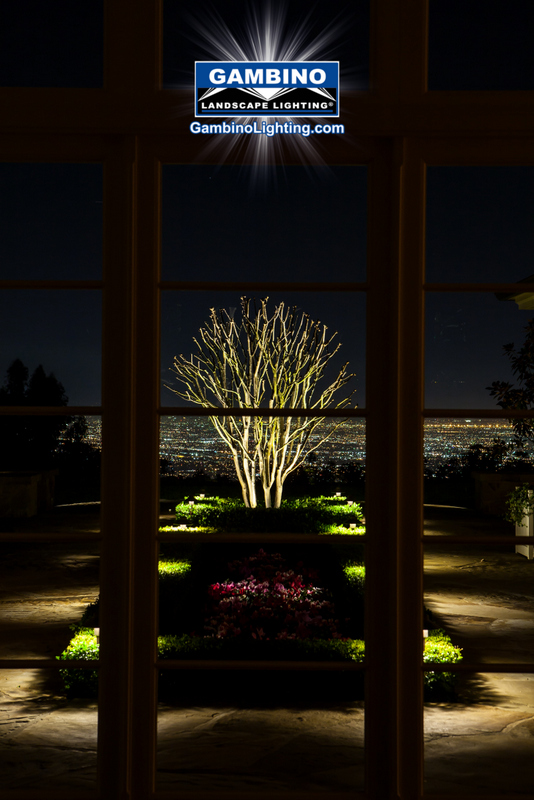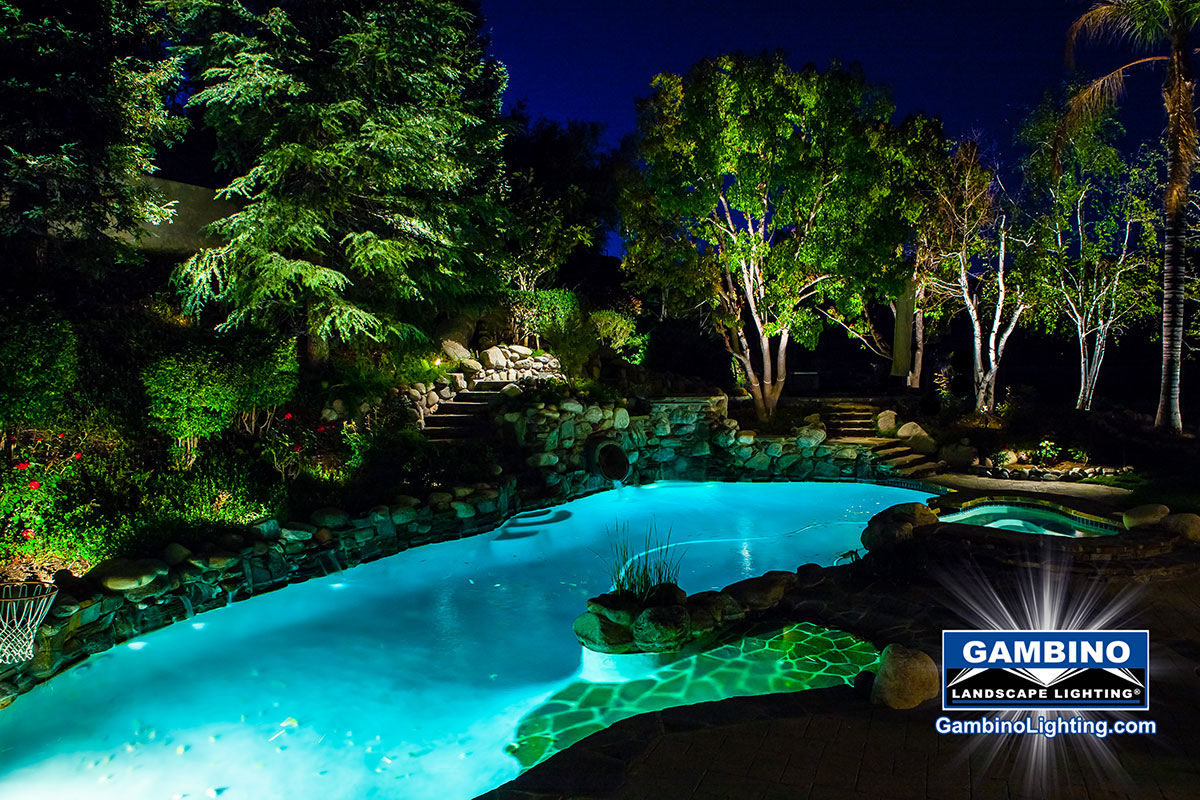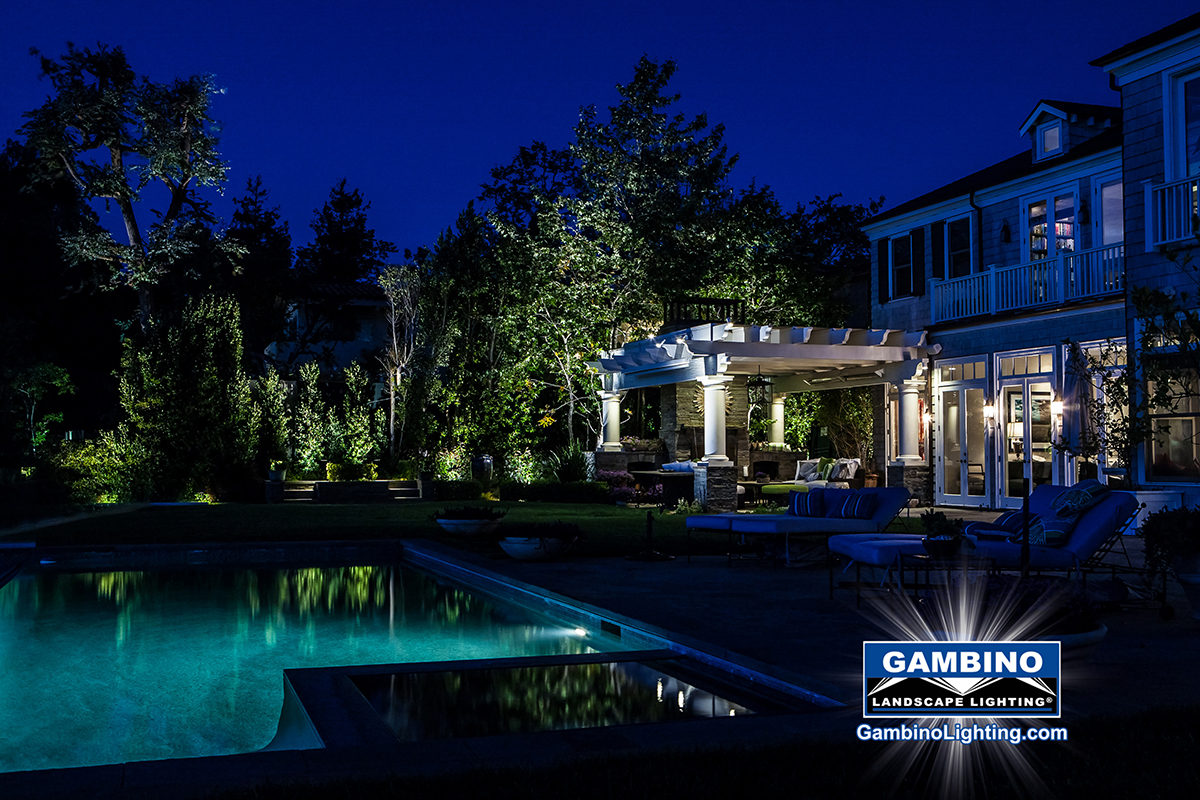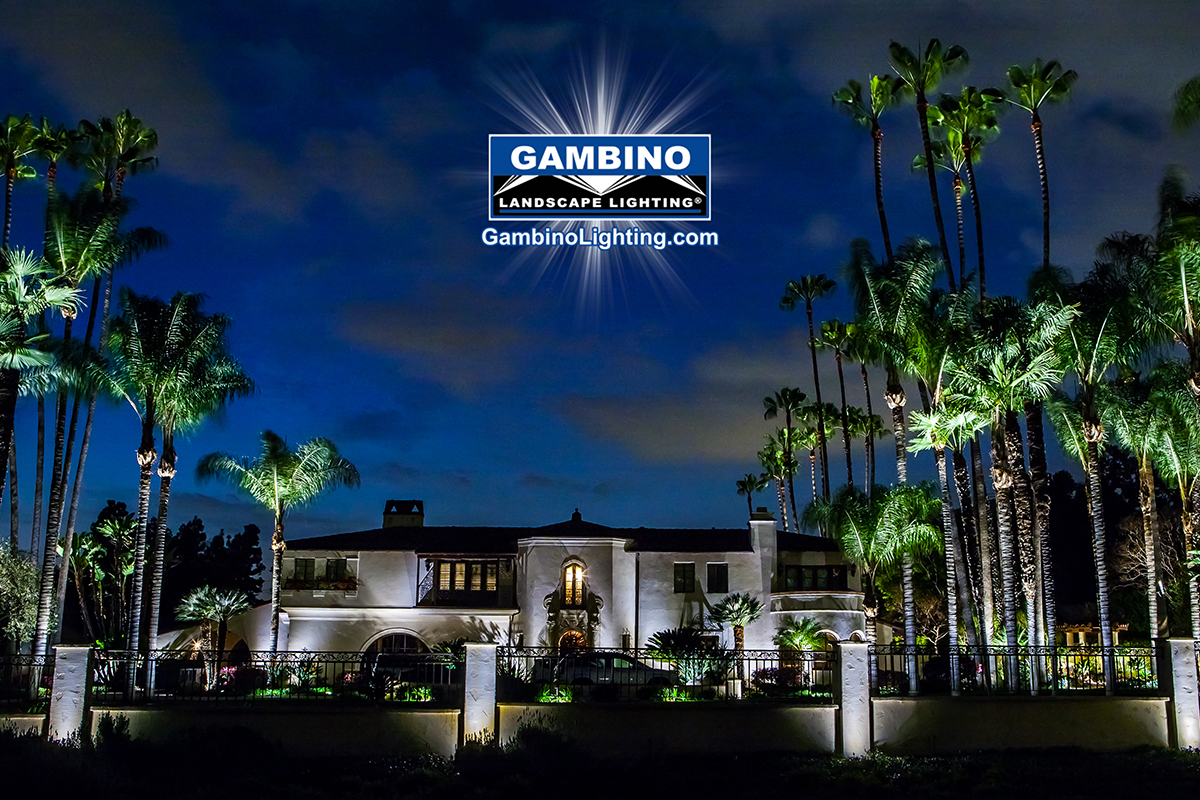25 Oct Suggestions for being a better landscape lighting client
By Mike Gambino
Getting a glimpse into the mind of a landscape lighting designer builder can give you a new perspective into outdoor lighting projects on your property.
I’ve learned a lot working with all kinds of home and business property owner clients over the past 29 years as a landscape lighting Design/Build contractor, and some of those lessons can help property owners too. What you do is just as important as what you don’t do, and sometimes a project owner’s actions can negatively affect a landscape lighting project’s outcome.
How do you know if you’re helping or hurting your project? Read on to find out and to see what can help your project and design/owner relationship go more smoothly.
 1-Don’t delay decisions
1-Don’t delay decisions
If you want your project to go well, the best thing to do is make every single decision before work starts. A good builder can talk you through the list of situations that might come up on your job, but decisions about situations aren’t usually what cause delays.
Instead, most of the issues are related to decisions about things like fixtures, surface finish and custom feature selection. These may seem small, but when your custom configured fixtures are two weeks late, technicians have to be rescheduled and work on other projects that once started may take several weeks to complete so you’ll see how something small can balloon into delays on a project.
2-Don’t change your mind (too much)Even though it’s inevitable that you’ll change your mind about something/s on your project, know this: Every time you change your mind in a significant way, it’ll result in a change order. Although the change may seem minor, there are always added costs, even if it’s only the time spent discussing the change.
Scheduling can be affected too. Everyone working on the job needs to be informed of the change so no one’s working on the old plan. Everyone makes changes, and that’s OK, just be aware of the potential to disrupt and delay the job.
3- Don’t buy your own materials It seems like an obvious way to save money, a designer builder is going to mark up the cost of materials and pass that added cost on to you. That’s true, but the builder may get a better price than you to begin with, meaning that he will make a little extra money that will be appreciated and will go a long way with the good will of a project.
The added value to you as the property owner is that you didn’t need to spend your time procuring parts that you are not familiar with and risk that they will not be the correct ones for the project. Not having the right parts or no parts at all on the job when needed will cause delays which will cost you not only money (see #1) but also cause interruption of the project and cause bad will going forward.
In addition you will not have the builder on your side for warranty issues in the future. You also need to consider and calculate what your time is worth. Realize the time spent hassling with vendors and getting the parts to the site on time is time that you are not being paid for whatever it may be that you get paid for to make your living.
 4-Don’t highlight an eyesore Though a designer/builder will rarely come right out and say this, some aspects should be kept in shadow rather than have assets put towards them into them lighting them up. Though this is a rare situation sometimes a property owner will insist that the gargoyles made of plastic they bought at the .99 cents store be the focal point of their garden at night. Listen to the professionals who come to look at your job (see #7). Be open and receptive to their suggestions.
4-Don’t highlight an eyesore Though a designer/builder will rarely come right out and say this, some aspects should be kept in shadow rather than have assets put towards them into them lighting them up. Though this is a rare situation sometimes a property owner will insist that the gargoyles made of plastic they bought at the .99 cents store be the focal point of their garden at night. Listen to the professionals who come to look at your job (see #7). Be open and receptive to their suggestions.
5-Don’t work without a contingency fund If you find out that the work you wanted to do costs more than you expected or budgeted, you’re in good company. It’s almost unheard of that a person sets a realistic budget for a project. But don’t eat into your contingency to stretch the budget. If you follow rule number one and make every decision ahead of time, you can probably get away with a 5 percent contingency if you don’t go hog wild increasing the scope of the job mid stream and you have a good designer builder.
6-Don’t let children and pets get in the way Though the people working in your home will often try to accommodate your pets and kids, they shouldn’t have to, it’s just not safe to have children or animals around the work area while a landscape lighting build is going on.
 7-Don’t make unreasonable decisions just to initially save money Most people ignore this rule, and for good reason. Quality Landscape lighting is expensive. However, just remember building quality landscape lighting systems never gets cheaper later. A great landscape lighting system adds value and enjoyment to the property owner far beyond what was paid. If budget is legitimately an issue than do specific areas complete instead of spreading the entire property thin and nothing looks or functions well. Instead of insisting on completing everything at once when the money is just not there to do it right. Have a master plan zoned out and scheduled over time when budget will allow this way you get the most bang for your buck and are always satisfied with the results.
7-Don’t make unreasonable decisions just to initially save money Most people ignore this rule, and for good reason. Quality Landscape lighting is expensive. However, just remember building quality landscape lighting systems never gets cheaper later. A great landscape lighting system adds value and enjoyment to the property owner far beyond what was paid. If budget is legitimately an issue than do specific areas complete instead of spreading the entire property thin and nothing looks or functions well. Instead of insisting on completing everything at once when the money is just not there to do it right. Have a master plan zoned out and scheduled over time when budget will allow this way you get the most bang for your buck and are always satisfied with the results.
8-Don’t be a distraction by insisting on experimentation that your designer knows will not work It may sound harsh, but nothing sidelines a project faster (and potentially designer/owner relationships) than ill advised design changes/recommendations made mid project by owner with insistence on mockups without compensation that the experienced designer knows will not work. Only to realize afterwards the designer was right. This undermines the trust between owner and designer which is so crucial before during and after a project is completed. It wastes time, slows down the momentum of a project and costs money. The only thing worse is doing it over and over again only to come to the same realization you should have trusted your design professional’s experience, good judgment and reasons for hiring them in the first place.
 9-Don’t ignore what the property requires Do not micromanage or question your designer builders fixture counts and how many of each and what type is required to effectively illuminate your property. If you have any question of their competence and ability then you should not have hired them in the first place. Usually decisions made by property owners to lower fixture counts are made without reason and are entirely financially driven (see #7). Although they will insist they don’t want “too much light” and will use that as an excuse to validate their requests. For instance, almost always 3 lower powered strategically located fixtures triangulated around a tree will show better depth and coverage than 2 higher brightness fixtures of the same type hands down.
9-Don’t ignore what the property requires Do not micromanage or question your designer builders fixture counts and how many of each and what type is required to effectively illuminate your property. If you have any question of their competence and ability then you should not have hired them in the first place. Usually decisions made by property owners to lower fixture counts are made without reason and are entirely financially driven (see #7). Although they will insist they don’t want “too much light” and will use that as an excuse to validate their requests. For instance, almost always 3 lower powered strategically located fixtures triangulated around a tree will show better depth and coverage than 2 higher brightness fixtures of the same type hands down.
10-Don’t work without an experienced designer builder and his/her crew A talented experienced designer builder will get your aesthetic and help you come up with a good plan to suit your needs.
Whatever you do, don’t start a landscape lighting project without the right people in place! A lot of elements interact in a space an experienced designer builder will catch problems before they are built. Lighting materials are not cheap and most times if the wrong people are chosen to do the work the wrong materials usually are specified right along with them making that a 100% loss for the owner. There is a saying- “If you don’t have the money to do the job right then where is the money going to come to do it over again?
If you want a functional and beautiful space, hire an experienced landscape lighting designer builder.
 This landscape lighting blog is published by Mike Gambino of Gambino landscape lighting inc. all rights reserved.
This landscape lighting blog is published by Mike Gambino of Gambino landscape lighting inc. all rights reserved.  Mike is a professional landscape lighting system designer/ builder and has been designing, installing and maintaining landscape lighting systems for more than 29 years. Mike resides in the Los Angeles area with his wife and 2 sons. To visit his website go to www.Gambinolighting.com . To inquire about hiring Mike please click here .
Mike is a professional landscape lighting system designer/ builder and has been designing, installing and maintaining landscape lighting systems for more than 29 years. Mike resides in the Los Angeles area with his wife and 2 sons. To visit his website go to www.Gambinolighting.com . To inquire about hiring Mike please click here .
Blog articles may be published with permission on other websites without editing or



No Comments